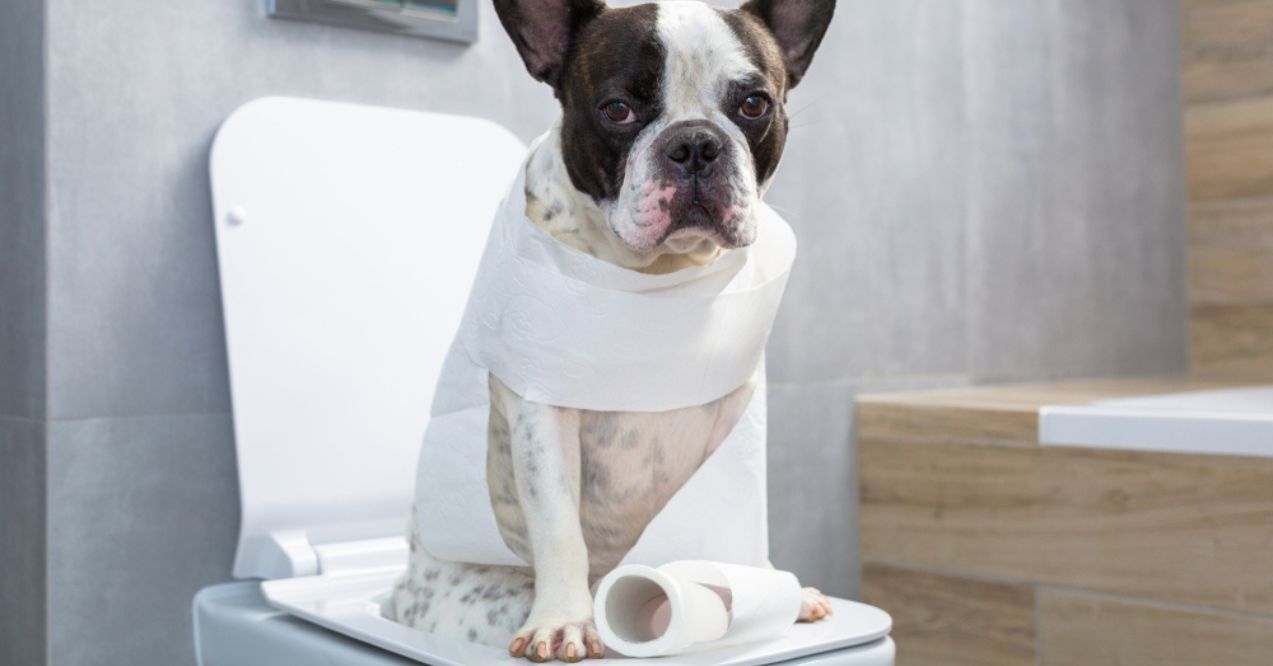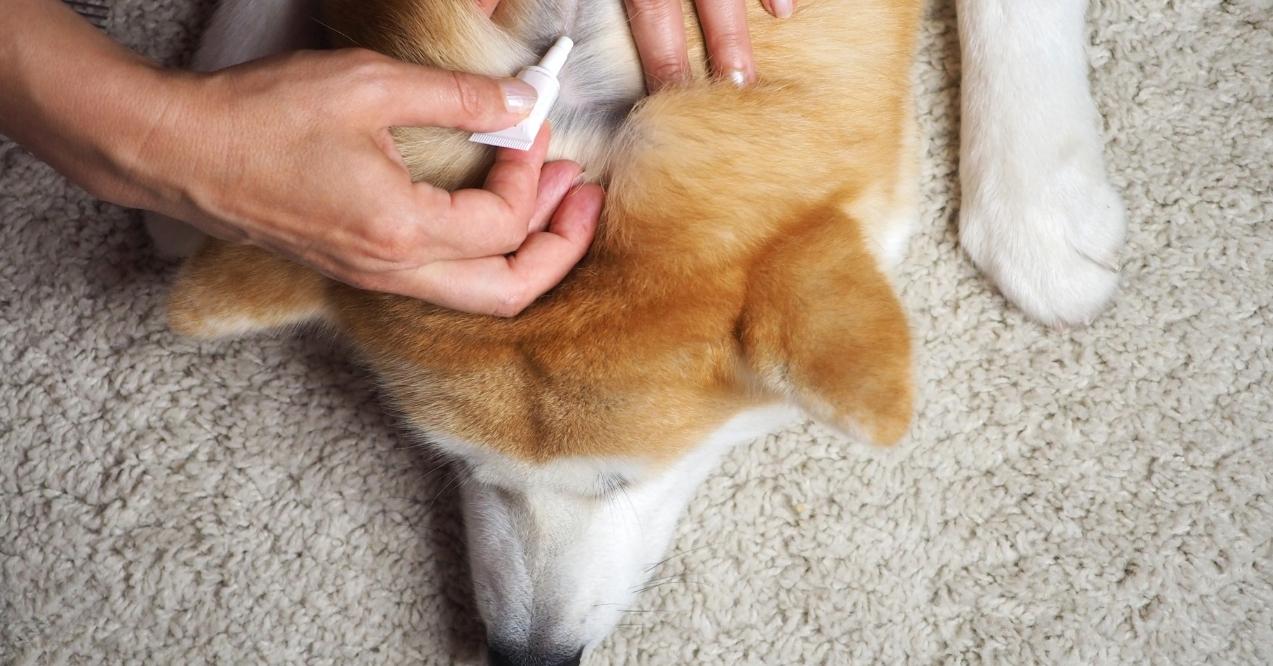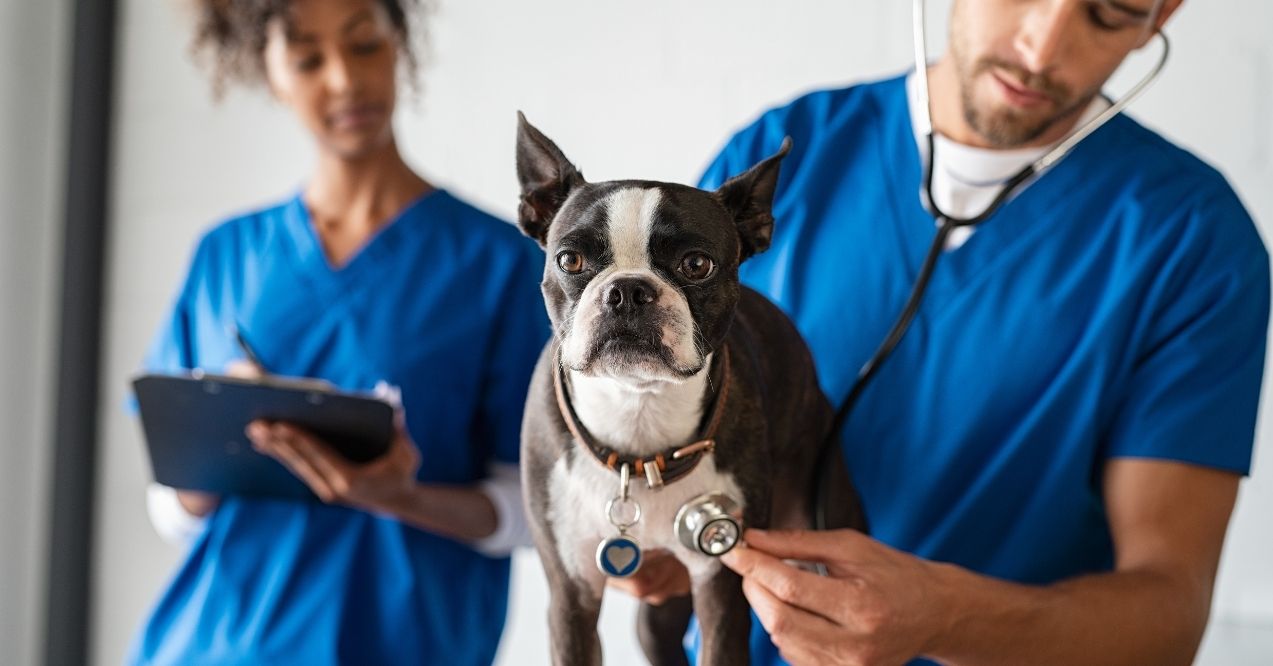10 Signs Your Dog Needs Probiotics
Recognizing the signs your dog needs probiotics is crucial for maintaining their overall health and well-being. Recurring digestive problems such as diarrhea, constipation, and gassiness are common symptoms that may suggest an imbalance in your dog’s gut flora.
Probiotics, which are beneficial bacteria, can help regulate and support your dog’s digestive health by promoting a balanced gut environment. Visible symptoms like frequent loose stools or constipation and less obvious signs such as excessive gassiness can alert you to potential digestive imbalances. By understanding these signs early, you will be able to take proactive steps to support your dog’s digestive well-being.
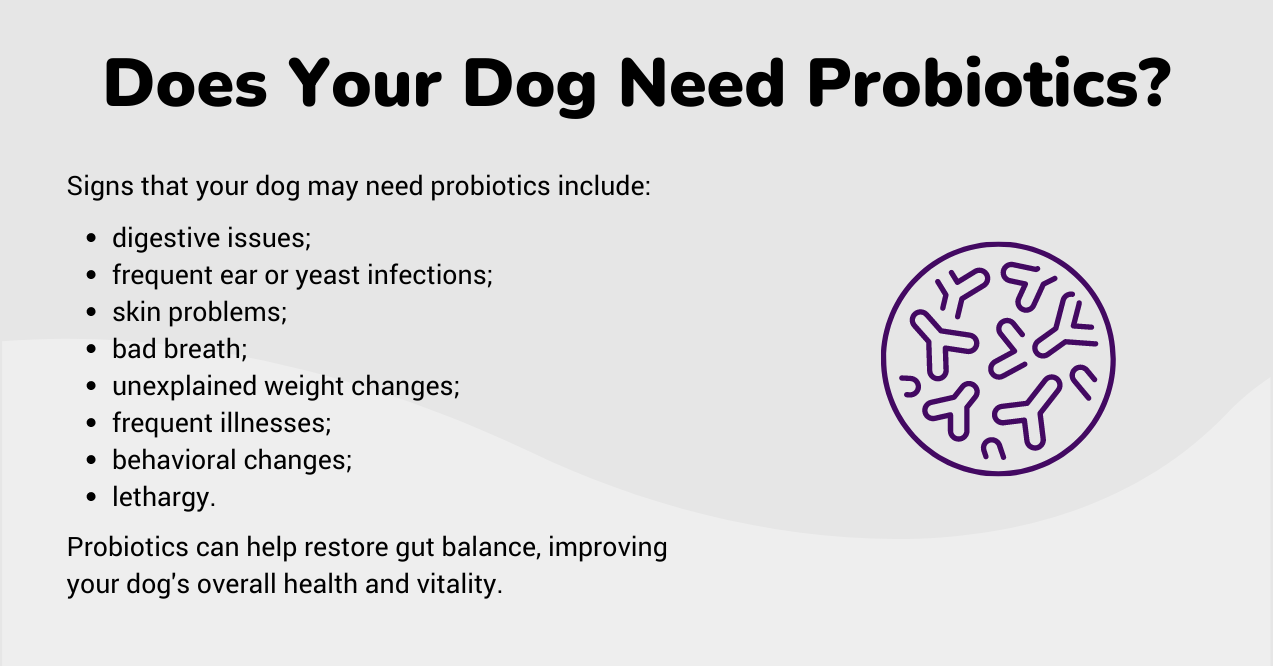
Common Signs Your Dog Needs Probiotics
Understanding the signs your dog needs probiotics can help you support their health more effectively. These beneficial bacteria play a crucial role in supporting digestive health, immune function, and even skin condition. Here are ten common indicators that your canine companion might need probiotics:
1. Digestive Issues
Recurring digestive problems such as diarrhea, constipation, and gassiness are warning signs your dog’s digestive system is in distress and might benefit from probiotics. Diarrhea can result from an overgrowth of harmful bacteria in the gut, while constipation might indicate a lack of good bacteria to aid in digestion. Gassiness or bloating occurs when food isn’t properly broken down. Probiotics support digestive health by promoting a healthy balance of gut bacteria, helping to alleviate these symptoms. Visible signs include frequent loose stools, straining during bowel movements, and excessive flatulence. Less visible symptoms might be a change in appetite or energy levels.
2. Frequent Ear Infections
Frequent ear infections can also indicate an imbalance in gut bacteria. An overgrowth of yeast or harmful bacteria in the gut can manifest as ear problems. Symptoms include persistent scratching at the ears, shaking the head, and visible redness or discharge from the ears. Probiotics help by restoring the balance of good bacteria, which can reduce the incidence of these irritations and promote healthier ears. Less obvious signs might include your dog being more irritable or sensitive around the ears.
3. Skin and Coat Problems
Skin and coat issues, such as dryness, flakiness, or a dull coat, can indicate an internal imbalance. Healthy skin and a shiny coat are often reflections of good internal health. When your dog’s gut flora is imbalanced, it can lead to nutrient absorption issues, affecting skin and coat health. Probiotics can improve skin hydration and promote a healthier coat by enhancing nutrient absorption and reducing pro-inflammatory irritations. Visible symptoms include excessive scratching, bald patches, or dull fur, while less obvious signs might be an unusual amount of shedding or changes in your dog’s grooming habits.
4. Bad Breath
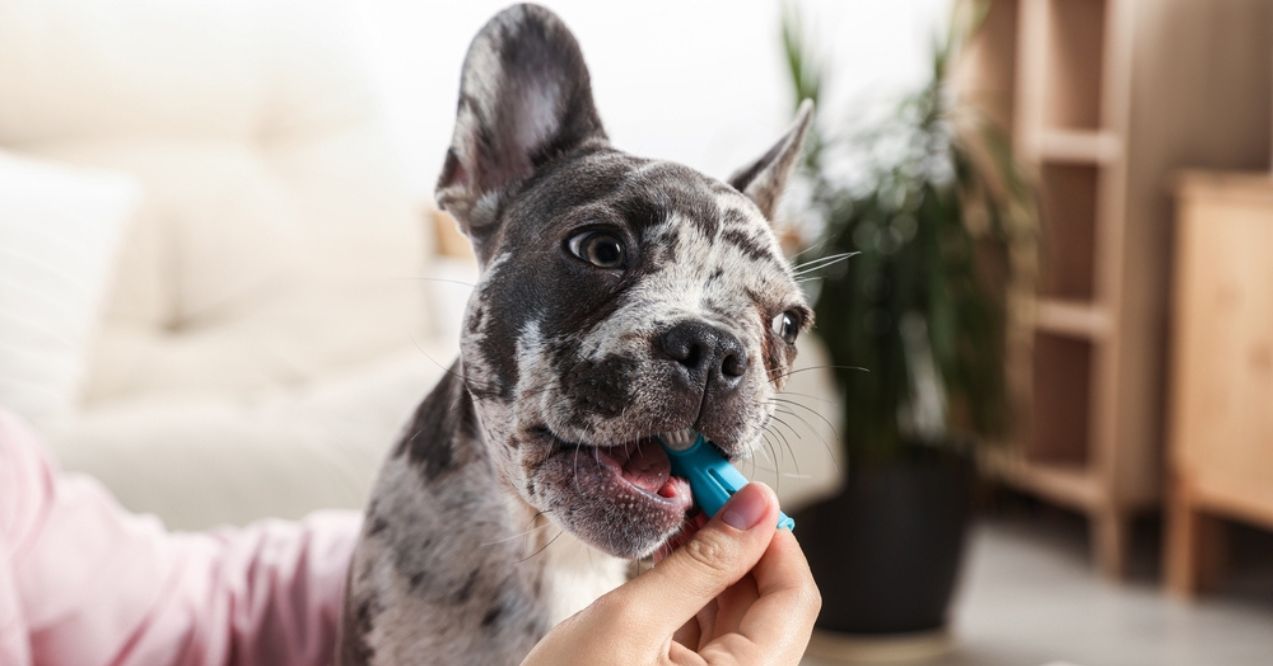
Persistent bad breath is a common but often overlooked sign of poor gut health. Bad breath, or halitosis, can result from an overgrowth of harmful bacteria in the digestive tract. Probiotics can help by balancing the gut bacteria, which can, in turn, reduce bad breath. Visible symptoms include a persistent foul odor from the mouth, while less visible signs might include reluctance to eat hard foods or a change in chewing habits.
5. Frequent Illnesses
Frequent illnesses can indicate a compromised immune system, often linked to poor gut health. When the gut bacteria are imbalanced, your dog may be more susceptible to infections and general sickness. Probiotics support immune function by promoting a healthy gut microbiome, which is essential for a strong immune response. Visible symptoms include frequent infections or prolonged recovery times from minor illnesses, while less visible signs might include a general lack of vitality or increased fatigue.
6. Behavioral Changes
Behavioral changes may be one of the less obvious signs that your dog needs probiotics. A study conducted by Clapp, M., (2017) has revealed a strong connection between gut health and mental well-being in both humans and animals. An imbalance in gut bacteria can affect neurotransmitter production, influencing mood and behavior. If your dog is displaying increased anxiousness, aggression, or unusual lethargy, it might be linked to their gut health. Probiotics can help by promoting a balanced gut microbiome, which in turn supports better mental health. Visible symptoms include increased barking, restlessness, or withdrawal from social interactions. Less visible signs might be subtle mood shifts or changes in sleep patterns.
7. Unexplained Weight Loss or Gain

Unexplained weight changes can also be a concerning sign of an imbalanced gut. When the gut flora is disrupted, it can interfere with nutrient absorption, leading to weight loss or gain without any changes in diet or exercise. Probiotics support the digestive system by optimizing nutrient absorption and maintaining a healthy balance of bacteria. This can help your dog maintain an appropriate weight. Visible symptoms include noticeable weight loss or gain, while less visible signs might be changes in appetite or energy levels, indicating your dog is not absorbing nutrients efficiently.
8. Flatulence and Bloating
Excessive flatulence and bloating are clear signs of digestive discomfort and can indicate an imbalance in your dog’s gut bacteria. If your dog is frequently gassy or has a bloated abdomen, it may be due to an overgrowth of harmful bacteria producing excess gas. Probiotics help balance the gut flora, reducing gas production and alleviating bloating. Visible symptoms include frequent passing of gas and a visibly swollen belly. Less obvious signs might be restlessness or discomfort, particularly after eating, indicating your dog is experiencing internal discomfort.
9. Yeast Infections
Recurrent yeast infections, particularly on the skin and paws, can be a sign that your dog needs probiotics. An overgrowth of yeast can occur when the balance of gut bacteria is disrupted, leading to infections. Probiotics help by restoring this balance, reducing the incidence of yeast overgrowth. Visible symptoms include redness, itching, and discharge from affected areas. Less visible signs might include frequent licking or chewing of paws, indicating discomfort, or a yeasty smell coming from your dog’s skin.
10. Lethargy and Low Energy Levels
Lethargy and low energy levels can often be linked to poor gut health. When your dog’s digestive system is not functioning properly, it can lead to a lack of energy and overall vitality. Probiotics can boost your dog’s energy levels by promoting efficient digestion and nutrient absorption. Visible symptoms include a lack of interest in play or exercise and general tiredness. Less visible signs might be decreased enthusiasm for activities they once enjoyed or taking longer naps than usual.
Conclusion
You can give your dog probiotics at any time of day, but it’s often recommended to administer them during a meal to aid in digestion and absorption. Consistency is key, so choose a time that fits your daily routine.
It’s not recommended to give dogs human probiotics, as their digestive systems are different. Canine-specific probiotics are formulated to meet their unique needs and ensure safety and effectiveness. Always consult a vet before introducing any supplement.
Probiotics generally do not cause constipation in dogs. They typically promote digestive health and regularity. However, if your dog experiences constipation after starting probiotics, consult your veterinarian to adjust the dosage or explore other underlying issues.
Probiotics typically take about 4-6 weeks to show noticeable improvements in dogs, although some may see changes in as little as a few days. Results vary based on the dog’s health condition and the specific probiotic used.
Advertisement. This site offers health, wellness, fitness and nutritional information and is designed for educational purposes only. You should not rely on this information as a substitute for, nor does it replace, professional medical advice, diagnosis, or treatment. If you have any concerns or questions about your health, you should always consult with a physician or other health-care professional. Do not disregard, avoid or delay obtaining medical or health related advice from your health-care professional because of something you may have read on this site. The use of any information provided on this site is solely at your own risk.
